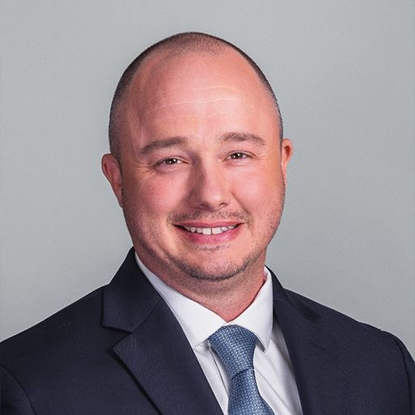
Pensacola Equitable Distribution Attorneys
Dividing Property & Protecting Your Assets
The term Equitable Distribution is used in almost every divorce case in the state of Florida. Courts use this term when referencing the division of assets and liabilities obtained during the marriage. The term generally refers a fair distribution of the assets and liabilities between the parties. However, in some cases this does not mean an actual even split between the parties.
Though the equitable distribution of assets and debts may sound like straightforward process for the parties, it is often one of the most litigated issues in a divorce case.
For instance, our attorneys are often faced with the following topics:
- Adverse parties’ secret assets or funds
- Dissolved assets or values of assets
- Opposing counsel intentionally under-valuing assets
- Opposing counsel intentionally over-valuing assets
- Co-mingling of nonmarital assets or funds
What are some common examples of marital property under Florida’s equitable distribution statute?
Some common examples of marital property include:
- Assets and debts acquired by the spouses during the marriage
- Enhancement of the value of a non-marital asset during the marriage due to the joint efforts of the parties
- Joint bank accounts
- Retirement benefits earned during the marriage
- Gifts made during the marriage from one spouse to another
What Process Does the Judge use to carry out equitable distribution?
The judge typically first determines whether the property of the parties should be classified as marital or nonmarital property. Your attorney will work closely with you to determine how each piece of property was acquired and under what circumstances. Then they will methodically develop a plan for presenting the best arguments for the judge on your behalf.
Once the judge has determined the appropriate classification of the property, he or she will then consider if any of the nonmarital property was commingled during the marriage with marital property. This is significant to the court because if nonmarital property was comingled with marital property, it is highly likely that the court would then classify the nonmarital property as marital because the comingling makes it seem as though the nonmarital property was intended to become marital at the time of comingling.
Once the judge has had an opportunity to hear the facts of the case, he or she will make the appropriate determinations and award the marital or nonmarital property to the appropriate party under the law.
Common examples of non-marital property being reclassified as marital property are:
- One party brings a home into the marriage and places the other party on the title to the home
- The party placed nonmarital funds into a joint bank account
- A spouse takes marital funds and places them into an account that has only contained nonmarital funds in it prior to that
Our attorneys will be able to aid you in determining the probable determination of your assets and debts. If you have questions regarding the equitable distribution of your assets, call our Pensacola office today at 800-822-5170.
What factors does a Florida court look at when determining how to equitably distribute property and debts in a Florida divorce case?
Florida’s equitable distribution statute provides a list of factors the court must consider when distributing property and debts in a divorce case.
The factors that the judge must consider when determining the outcome of your case are:
- The contribution to the marriage by each spouse, including contributions to the care and education of the children and services as homemaker
- The economic circumstances of the parties
- The duration of the marriage
- Any interruption of personal careers or educational opportunities of either party
- The contribution of one spouse to the personal career or educational opportunity of the other spouse
- The desirability of retaining any asset, including an interest in a business, corporation, or professional practice, intact and free from any claim or interference by the other party
- The contribution of each spouse to the acquisition, enhancement, and production of income or the improvement of, or the incurring of liabilities to, both the marital assets and the nonmarital assets of the parties
- The desirability of retaining the marital home as a residence for any dependent child of the marriage, or any other party under the following conditions: when it would be equitable to do so, if it is in the best interest of the child or that party, and if it is financially feasible for the parties to maintain the residence until the child is emancipated or until exclusive possession is otherwise terminated by a court of competent jurisdiction. In making this determination, the court shall first determine if it would be in the best interest of the dependent child to remain in the marital home and, if not, whether other equities would be served by giving any other party exclusive use and possession of the marital home
- The intentional dissipation, waste, depletion, or destruction of marital assets after the filing of the petition or within 2 years prior to the filing of the petition
- Any other factors necessary to do equity and justice between the parties
Our lawyers are experienced litigators who have practiced throughout the Florida Panhandle. We have developed proven practices that will achieve your litigation goals. We are no strangers to working with experts in other professions to further your equitable distribution objective.
Let our Pensacola family lawyers put their proven methods to work for you during this crucial time. Call our attorneys today and schedule your consultation.
Our Core Values
-
The Client Comes First and All Else Will FollowWe take pride in delivering best-in-class client service and experience, understanding the privilege and responsibility we have when assisting clients and their families through legal matters. It is our highest obligation.
-
Authenticity and TransparencyWe believe in being transparent about who we are, with ourselves, each other, and our clients and partners. This authenticity builds trust and fosters strong relationships.
-
Relentless Pursuit of the WinWe achieve stellar results by focusing on personal and professional performance and goals. Our relentless pursuit ensures we deliver exceptional outcomes for our clients.
-
Growth MindsetWe continuously learn, grow, and improve as individuals, as a law firm, and as advocates for our clients. We set and exceed both personal and professional goals to ensure ongoing development.
-
OwnershipWe take responsibility for our work and actions, ensuring accountability in all that we do. Our commitment to ownership drives excellence and fosters a culture of trust and reliability.
-
Results DrivenWe focus on outcomes and disregard the level of effort required. We have the vision and the discipline to do the work and face challenges to make our vision a reality for our clients.
-
Respect and Celebration for One AnotherWe support each other with kindness and respect, emphasizing a positive work culture and celebrating along the way. We respect our clients and support them through their challenges.
-
Unquestionable IntegrityWe stand up for what’s right with consistently sound ethics and courageous honesty. Our integrity is the foundation of our practice and guides our actions and decisions.
-
We are in it TogetherWe are client and team-focused, committed to the firm’s vision, and act for the greater good. We carry our weight, bring others along, and act with civility, candor, and respect in all interactions.
-
ReputationReputation is everything. We strive to have the best personal and professional reputations. We want our reputation to precede us and for opposing counsel to know we are committed to fighting for our clients.
-
Community StewardshipWe embody the concept of giving back to the community. The Virga Law Firm is committed to supporting and improving the community through responsible and caring actions, setting an example of character.

Meet Your Attorneys
Compassionate Counsel, Relentless Representation.









